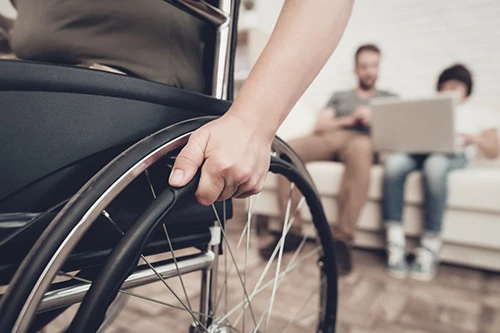Gyms are a fantastic way to stay fit, but accidents can happen. Gym injuries can range from minor to severe. In some cases, people can sue the gym for their injuries. Although gyms often include waivers in their contracts, these legal documents may not always protect them from liability.
Common Causes of Injuries at Gyms
Many gym injuries occur due to simple accidents or either member or gym negligence. A knee injury in the gym may occur during an intense workout, or a shoulder injury that occurs in the gym could also be the result of using broken gym equipment. Some of the most common gym injuries include wrist sprains, lower back injuries, and knee issues.
Faulty Equipment
Faulty gym equipment is a leading cause of accidents. Broken exercise equipment, such as treadmills or weight machines, can cause serious harm. If a gym fails to maintain its equipment, it can be held responsible for any injuries. You may have grounds for a lawsuit if you’ve been injured due to broken gym equipment.
Gym owners are responsible for keeping their facilities safe and free of hazards. If you’ve slipped and fallen in a gym due to poor maintenance or safety protocols that have been ignored by gym management, you may also be able to file a legal claim against the gym for your injury.
Understanding Waivers in Gym Contracts
Most gyms require each member to sign a liability waiver before using the facility. Gym waivers are designed to protect gyms from lawsuits. A waiver typically states that the gym is not liable for any injuries that occur while using their equipment. However, not all waivers are ironclad.
Even if you have previously signed a gym liability waiver, certain situations may allow you to challenge it. If an injury is due to gross negligence, faulty equipment, or unqualified trainers, the signed waiver may not protect the gym from a lawsuit.
If a gym has been made aware of broken exercise equipment or unsafe conditions but fails to fix them, this can be considered gross negligence. In such cases, the gym may still be held responsible for injuries, even if you signed a waiver.
When gym equipment malfunctions, it may cause a severe injury, especially when heavy weights or fast-moving machines are involved. If a gym fails to inspect or repair faulty gym equipment, the gym could be held liable in a faulty equipment lawsuit.
Personal trainers should be professionally trained and qualified. If a trainer provides poor advice or encourages you to use broken equipment, the gym could be liable for any injuries that you suffer.
Gym waivers don’t always hold up in court, especially in cases of gross negligence, faulty equipment, and trainer misconduct. Your gym injury lawyer can challenge the waiver if it doesn’t meet legal standards.
Steps to Take After a Gym Injury:
Seek Medical Attention
Your health always comes first. Before worrying about who is responsible for the injury, be sure to seek medical attention immediately, even if the injury seems minor at first. Some injuries, such as a wrist injury or a lower back injury that occurred in the gym, may become worse if left untreated.
Report the Incident
Next, be sure to notify the gym staff right away about your injury and be sure that the accident is recorded in the gym’s incident reports, which can be useful, especially if you decide to sue the fitness center.
Consult with a Lawyer
A lawyer can review your case and help to determine if you have a valid lawsuit against the gym for your injury. A professional attorney can also help with filing a lawsuit, such as a faulty equipment lawsuit or even a class action lawsuit against a gym or fitness center.
If you believe the gym is responsible for your injury, choosing to file a personal injury claim can be an option. A gym injury lawyer will typically help gather evidence and build your case, whether it is a faulty gym equipment lawsuit or a class action lawsuit against a large chain.



